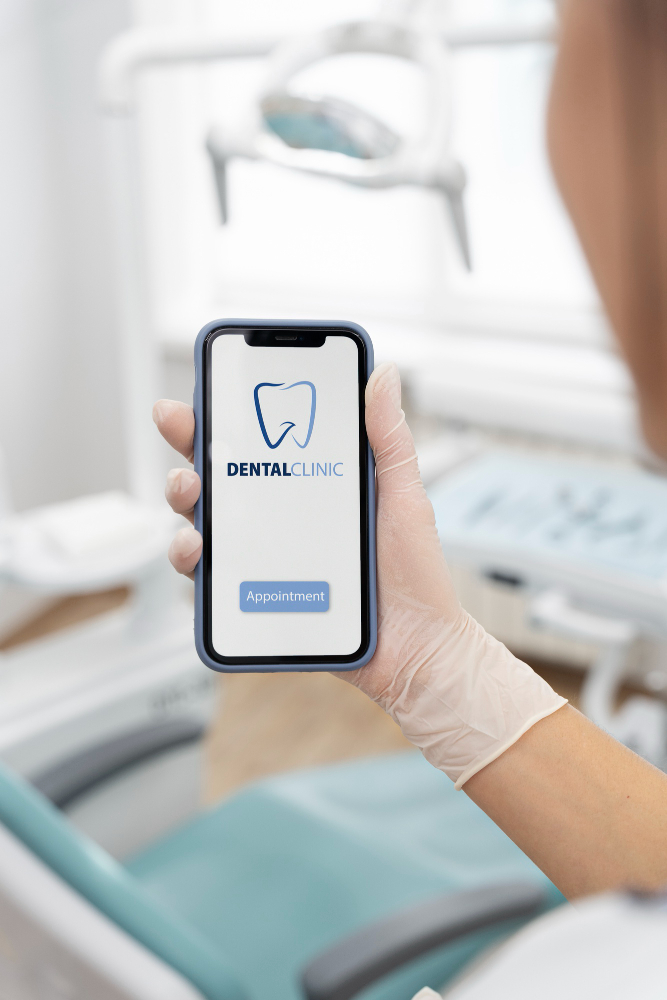I hope you enjoy reading this blog post.
If you want to get more traffic, Contact Us

Click Here - Free 30-Minute Strategy Session
Be quick! FREE spots are almost gone for this Month. Free Quote

The dental clinic faced an $8K gap in monthly profits that hindered operational growth and marketing budget allocation. Despite offering high-quality dental services, the clinic struggled to attract and retain a consistent flow of patients. Their website suffered from poor search engine visibility, ranking low for critical dental keywords with local intent.
Key obstacles included outdated on-page optimisation, minimal backlink authority, and ineffective local SEO practices. Additionally, the absence of mobile-first design frustrated potential visitors accessing the site via smartphones. These challenges created an urgent need for targeted improvements to reverse the stagnation in lead generation and revenue growth.

Click Here – Free 30-Minute Strategy Session
Be quick! FREE spots are almost gone for this Month
Search Engine Optimisation (SEO) holds significant promise for dental practices seeking to expand their patient base and boost revenue. With an emphasis on targeted strategies, SEO can help dental businesses rank highly for local search terms such as “dentist near me” or “emergency dental care”, ensuring better visibility where it matters most.
Local SEO, focused on geographic keywords and Google My Business optimisation, plays a pivotal role in attracting nearby patients. Additionally, site optimisation for mobile users and schema markup for displaying clinic details enhance relevance and user engagement. The potential lies in transforming online traffic into real-world appointments efficiently, making SEO indispensable for dental practices.
A detailed audit of the dental practice’s digital footprint revealed several key areas of concern that were limiting growth.
Addressing these weaknesses became essential to improve search engine rankings and user engagement.
Effective dental SEO begins with a detailed understanding of the target audience and competitive landscape. The first step involves conducting thorough keyword research, identifying high-value search terms relevant to dental services. This is followed by optimising the website’s structure and metadata, ensuring faster loading speeds, mobile responsiveness, and clear navigation.
Content development plays a pivotal role, focusing on educational and localised material tailored to patients’ needs. Building authoritative backlinks is another key factor, enhancing the domain’s credibility. Regular monitoring and refinement, supported by analytics tools, ensure the strategy adapts to emerging trends and algorithm updates.
Targeted keywords are pivotal to driving dental practice growth through online visibility. By identifying and utilising search terms that potential patients commonly use, dental practices can optimise their websites for improved ranking in search engine results. Keywords such as “emergency dentist near me” or “painless root canal” cater to specific needs, attracting local audiences effectively.
Utilisation of long-tail keywords further refines search intent, aligning dental services with patient expectations. Incorporating these keywords strategically into headlines, meta tags, and service descriptions enhances organic traffic and boosts conversions. Monitoring search trends ensures adaptability, keeping practices ahead in the competitive digital landscape.
On-page optimisation is crucial for dental websites aiming to rank higher in search engine results. This involves tailoring site content to meet search intent while aligning with SEO best practices. Key focus areas include crafting unique meta titles and descriptions for each page, ensuring keyword-rich headings, and maintaining readability.
A pivotal factor is implementing structured data, reflecting services like teeth whitening or root canal treatment. Using internal linking, pages become interconnected, improving site navigation and authority. Adding alt text for images enhances accessibility while boosting search visibility. Regularly updating content ensures alignment with algorithm changes, keeping the site competitive in searches.
Establishing authority in dental SEO involves acquiring high-quality backlinks from reputable websites. Links from authoritative domains signal credibility to search engines, enhancing rankings. Outreach to dental associations, healthcare blogs, and local directories can secure such partnerships. Identifying sites with strong domain authority ensures links that positively impact search visibility.
Guest blogging provides an avenue for creating valuable backlink opportunities while showcasing expertise. Link-building strategies must focus on relevance and quality, avoiding spammy links that harm rankings. Consistently monitoring backlink profiles and utilising disavow tools for harmful links maintain SEO integrity. A strategic approach drives long-term dental practice success.
Local SEO is a cornerstone for dental practices aiming to attract patients within their immediate vicinity. By optimising Google My Business profiles, dental clinics can ensure accurate business information, including hours, contact details, and location. The use of geographically targeted keywords, such as “dentist in [city]” or “family dental clinic near me,” enhances local search rankings.
Online reviews and ratings also play a significant role in local visibility. Encouraging satisfied patients to leave positive reviews can improve credibility and search performance. Furthermore, adding local schema markup to websites helps search engines display location-specific details for users.
Integrating location-based content into blogs and webpages, such as community engagement initiatives or local event sponsorships, strengthens the local presence.
Monitoring the effectiveness of dental SEO services involves evaluating key performance indicators (KPIs) that highlight growth and revenue impact. Metrics such as organic traffic indicate the number of users accessing the website through non-paid search results. Analysing conversion rates reveals how visitors interact with the site, booking appointments or engaging with services. Keyword rankings measure visibility improvements for targeted search terms, ensuring strategic alignment.
Additionally, click-through rates (CTR) provide insights into how optimised meta tags attract users from search engine results. Tools like Google Analytics and Search Console aid in mapping user behaviour. Consistent tracking ensures campaign adjustment for sustained growth.
Dental SEO strategies have proven crucial in reshaping the financial trajectory of dental practices. By optimising websites for search engines, these services enhance visibility in local searches and improve rankings for targeted keywords. This directly increases patient appointments and revenues. Effective SEO involves fine-tuning on-page elements like meta tags and using keyword-focused content, alongside off-page strategies such as link building. Analytics tools measure progress and identify areas for further improvement. Practices adopting professional SEO services have seen remarkable outcomes, often reaching revenue milestones like $80K per month through increased conversions and engagement from potential patients online.

LEAVE A REPLY